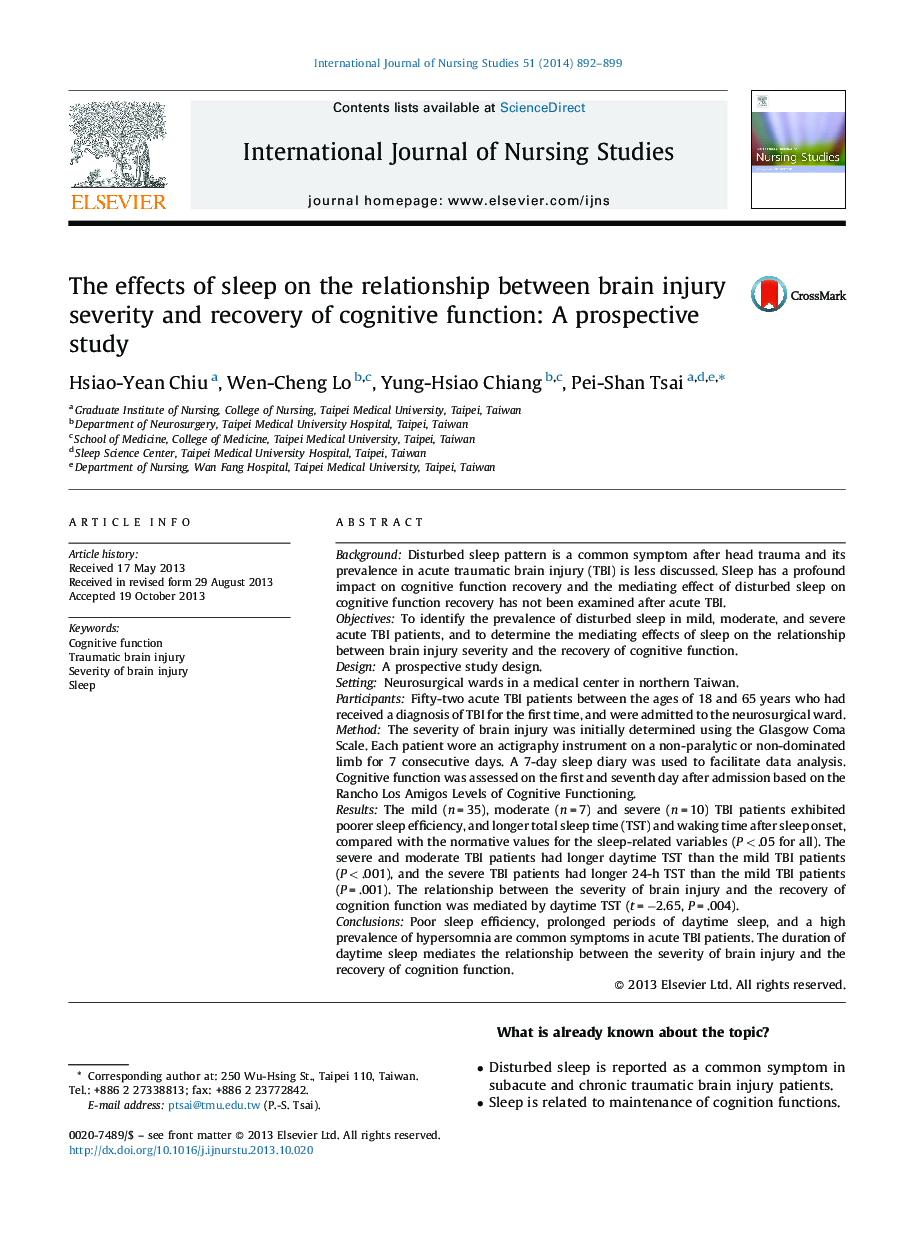| کد مقاله | کد نشریه | سال انتشار | مقاله انگلیسی | نسخه تمام متن |
|---|---|---|---|---|
| 1076102 | 1486535 | 2014 | 8 صفحه PDF | دانلود رایگان |
BackgroundDisturbed sleep pattern is a common symptom after head trauma and its prevalence in acute traumatic brain injury (TBI) is less discussed. Sleep has a profound impact on cognitive function recovery and the mediating effect of disturbed sleep on cognitive function recovery has not been examined after acute TBI.ObjectivesTo identify the prevalence of disturbed sleep in mild, moderate, and severe acute TBI patients, and to determine the mediating effects of sleep on the relationship between brain injury severity and the recovery of cognitive function.DesignA prospective study design.SettingNeurosurgical wards in a medical center in northern Taiwan.ParticipantsFifty-two acute TBI patients between the ages of 18 and 65 years who had received a diagnosis of TBI for the first time, and were admitted to the neurosurgical ward.MethodThe severity of brain injury was initially determined using the Glasgow Coma Scale. Each patient wore an actigraphy instrument on a non-paralytic or non-dominated limb for 7 consecutive days. A 7-day sleep diary was used to facilitate data analysis. Cognitive function was assessed on the first and seventh day after admission based on the Rancho Los Amigos Levels of Cognitive Functioning.ResultsThe mild (n = 35), moderate (n = 7) and severe (n = 10) TBI patients exhibited poorer sleep efficiency, and longer total sleep time (TST) and waking time after sleep onset, compared with the normative values for the sleep-related variables (P < .05 for all). The severe and moderate TBI patients had longer daytime TST than the mild TBI patients (P < .001), and the severe TBI patients had longer 24-h TST than the mild TBI patients (P = .001). The relationship between the severity of brain injury and the recovery of cognition function was mediated by daytime TST (t = −2.65, P = .004).ConclusionsPoor sleep efficiency, prolonged periods of daytime sleep, and a high prevalence of hypersomnia are common symptoms in acute TBI patients. The duration of daytime sleep mediates the relationship between the severity of brain injury and the recovery of cognition function.
Journal: International Journal of Nursing Studies - Volume 51, Issue 6, June 2014, Pages 892–899
